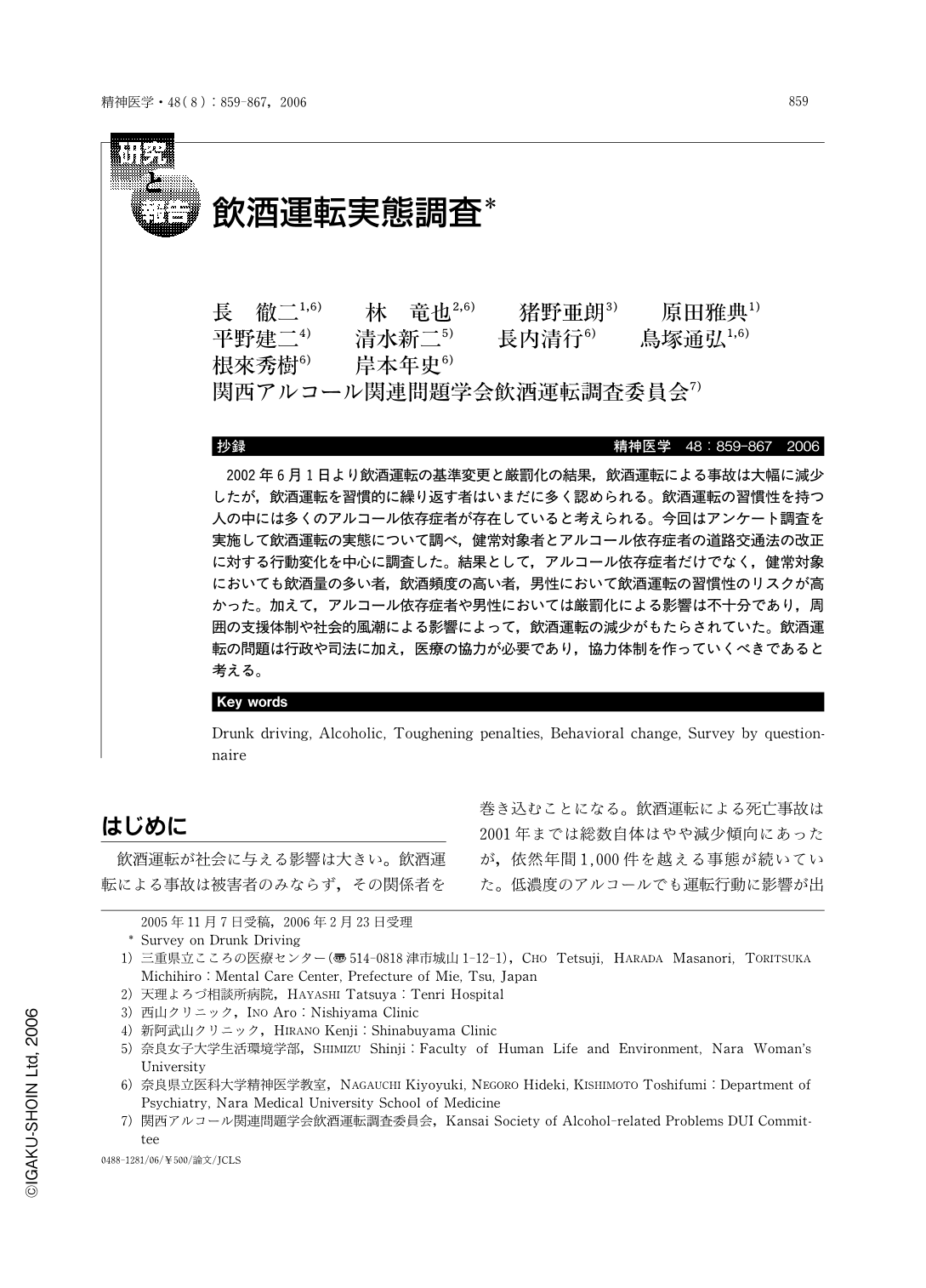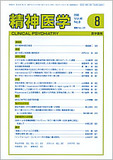Japanese
English
- 有料閲覧
- Abstract 文献概要
- 1ページ目 Look Inside
- 参考文献 Reference
- サイト内被引用 Cited by
抄録
2002年6月1日より飲酒運転の基準変更と厳罰化の結果,飲酒運転による事故は大幅に減少したが,飲酒運転を習慣的に繰り返す者はいまだに多く認められる。飲酒運転の習慣性を持つ人の中には多くのアルコール依存症者が存在していると考えられる。今回はアンケート調査を実施して飲酒運転の実態について調べ,健常対象者とアルコール依存症者の道路交通法の改正に対する行動変化を中心に調査した。結果として,アルコール依存症者だけでなく,健常対象においても飲酒量の多い者,飲酒頻度の高い者,男性において飲酒運転の習慣性のリスクが高かった。加えて,アルコール依存症者や男性においては厳罰化による影響は不十分であり,周囲の支援体制や社会的風潮による影響によって,飲酒運転の減少がもたらされていた。飲酒運転の問題は行政や司法に加え,医療の協力が必要であり,協力体制を作っていくべきであると考える。
From June 1, 2002, drunk driving regulations have been modified and toughened, which brought a considerable decrease in the number of accidents due to drunk driving. However, a lot of people have still been found to repeatedly drive drunk. Some habitual drunk drivers seem to be alcoholics. This survey sought to discover the realities of drunk driving by questionnaires, mainly on the revision of the Road Traffic Law and the behavioral changes brought about in normal people and alcoholics. As a result, it was shown that people who consume much alcohol and who frequently drink, even normal people, as well as alcoholics, had high risks of habitual drunk driving. In addition, both alcoholics and normal people were insufficiently affected by the toughened penalties, while community support and the effect of social trends accounted for the decrease of drunk driving. It is considered that the drunk driving problem requires support by medical care, and that the government and the judiciary should establish a medical support system.

Copyright © 2006, Igaku-Shoin Ltd. All rights reserved.


